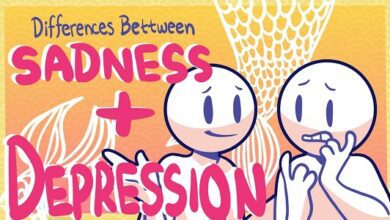Poltergeist definition Witnesses challenges of Psychology
Poltergeist
Poltergeist or RSPK (Recurrent spontaneous psychokinesis) designates events that happen by a kind of “haunting” by a spirit before a family, individual, house and objects: like lights that turn on and off, things that move from place without explanation, etc. . In psychology, the term RSPK is used, as it is understood that the Poltergeist is a human psychokinetic phenomenon, as we will explain later. In this article we will provide you the definition of Poltergeist.
Within psychology we also relate the Poltergeist to the term recurrent spontaneous psychosis, which would be exactly these “spiritual” events and without apparent explanation, where there is a constant haunting of the victims.
What is psychokinetic
A term used to designate the ability of the mind to influence the movement of matter. We can associate this term with the movement that these disembodied spirits have towards objects, used to haunt their victims.
Does psychology study hauntings?
No, psychology does not study hauntings. But, it works with the people who can witness these events. So, imagine that the people who go through the Poltergeist are emotionally shaken and going through confused states of mind, that’s where psychology comes in.
Psychology believes that studying individuals who witness these phenomena will study the intentions related to their psychological life, thus making a psychological analysis of this human psychokinetic action.
Are the Poltergeist episodes real?
Not necessarily, but researchers believe that even though they are not genuine, they have a reason behind them, something that makes sense in the psychological sense. Therefore, investigators tend to seek to take seriously even non-real ones, as they also have a similar logical order to those that are not fake. The greatest difficulty for professionals who study the Poltergeist in Psychology is the simple question “What is the moment that we can say that the phenomenon really happened?”
Poltergeist Witnesses
For many psychologists who have studied the phenomenon, there is evidence that the Poltergeist’s nature is psychological. [1] There is a logical-grammatical order that holds in all cases, even false ones. Despite this order, there is not necessarily a relationship with negative personality traits.
That is, even people who do not have any disorder can experience these phenomena, so there is no proof that all witnesses have or do not have a personality or behavior disorder.
The challenges of Psychology with Poltergeist
The Poltergeist phenomenon is a challenge for the understanding of psychology, since true cases cause the same psychological effects as “false” cases. Therefore, psychology has to face many difficulties to understand the phenomenon and its causes/effects in the human psyche.
But after all, why is it so difficult for psychology researchers to be able to investigate the minds of these people who have gone through these Poltergeist situations?
- Press
- Inhibition of the phenomena with the researchers
- witnesses
- Individuals’ information
- Poltergeist post investigation
1. Press
One of the difficulties of psychological investigations in the face of the Poltergeist phenomenon is the media. For how are they going to investigate the minds of these witnesses properly if there are always reporters and newspapers involved in these situations?
After all, the press ends up distorting the data to increase the public’s interest in their magazines. Furthermore, this media interest affects the lives of the people involved. For psychologists working in this area, they report:
“The people involved are deprived of a normal social life… the information about the occurrences becomes more and more confused and distorted, making it impossible to do a good research job.”
2. Inhibition of the phenomenon in front of researchers
Imagine a horror movie that features a Poltergeist – have you ever noticed that when the “investigator or medium” in the movie appears, the spirit avoids showing itself in order not to be discovered? The inhibition part would reference that.
Although psychology does not answer whether or not it believes in the phenomenon – one of the difficulties that these investigators experience is exactly the fact that when they start investigating the house or individuals, the phenomena decrease, making it almost imperceptible to the professional.
Some psychological theories note that this may occur, as the Poltergeist and its consequences and effects are linked to family dynamics, therefore, when someone from the outside is inside – it would reduce its activity in the psyche of these individuals.
3. Witnesses
We understand that the focus of Psychology before the Poltergeist is the individuals who go through this situation, therefore, the work will be focused on these people. However, professionals in the field recognize that human speech is flawed, which considerably affects the study.
4. Information of individuals
Psychologists need to investigate the Poltergeist phenomenon properly, and for that it is necessary to look closely at the statements of witnesses and collect information from them. However, one of the difficulties of these professionals is to obtain information in a non-invasive way.
The invasion to obtain information from Poltergeist witnesses can be very complicated, since if it is done aggressively, it may disrespect the space of these people, breaking secrecy (an essential characteristic in psychology) and making the study of the case even more difficult.
5. Poltergeist Post-Investigation
Due to the fraud and complications of how to prove that it is real or not in Poltergeist, psychologists in their investigation have great difficulties in putting together the data. After the surveys, these data from the witnesses are combined. However, what to do if we don’t know if it’s real or not? How to proceed in the post-investigation?




